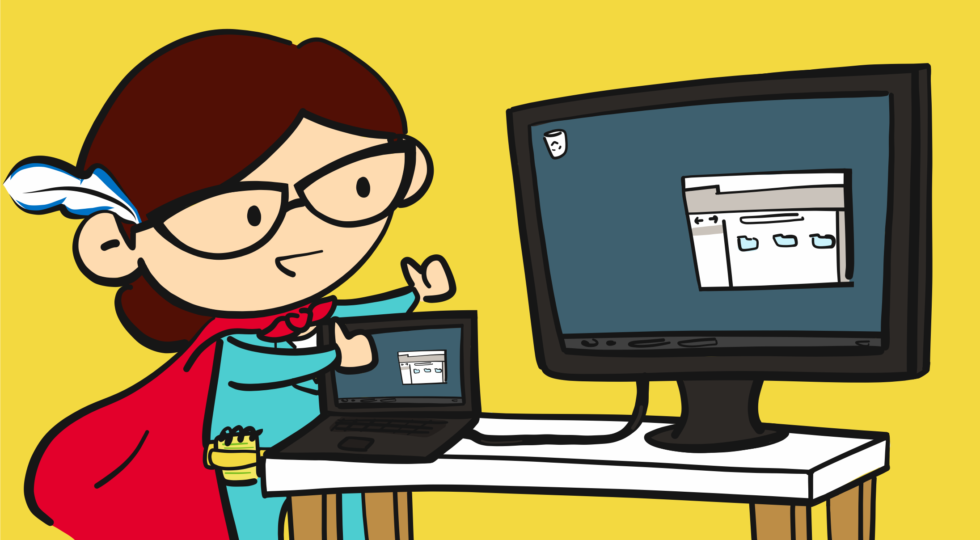In the XXI century, IT solutions optimize almost all business processes. Technologies simplify and accelerate the solution of diverse tasks, provide access to current opportunities for sales and communication with customers, support the scaling and growth of companies, relieve the owners and managers mentally and emotionally.
So, with the help of a smartphone, any business owner can work with documentation and in some ways to print it. But this is only a tiny part of the use of technology in business development.
IT solutions require investments at the beginning and supporting investments afterward. But they quickly pay for themselves by increasing the efficiency of business processes and staff reduction. So let us take a closer look at the possibilities of digital business and the prospects offered by technology.
Electronic Document Management
Printing, storing, transporting, and archiving tons of paper documents is gradually becoming a thing of the past. Contracts, invoices, acts, reports are stored electronically. A massive staff of clerks becomes unnecessary. The time and energy previously directed on records management are released for strategic business tasks.
Digitalization of Business Culture
A business meeting scheduled in the post-covid era will 95% involve Zoom or similar. Many companies that are not physically tied to a specific location never returned to the offices. Instead, workflow is organized in WhatsApp chats, shared folders, and documents in the cloud.
The practice of signing contracts is also changing, including the most important and the largest. Top managers no longer need to fly to a counterparty on the other side of the world.
This is especially valuable in these times of travel restrictions. All they have to do is upload a contract to a particular cloud and provide a legally binding electronic signature. The best-known service in the world for this is DocuSign. Similar services work thoroughly in most countries of the world.
The digital way of doing business is great for scaling: to increase the client base, there is no need to hire a proportional number of client managers or invest proportionally in IT systems.
Automation Process
Automated accounting has long been commonplace. However, companies integrate client databases, CRM systems, loyalty programs, and personnel records. Automated systems allow you to collect customer information, make personalized offers, upsells, reminders, and track reviews.
Businesses that use the labor of numerous low-skilled employees, such as movers and cleaners, organize work with special programs in which a manager hands out tasks and the employee gets it in an app on his phone. He sees the description, location, and time of execution. Again, the manager saves his mental and emotional resources. Thus, a director can hire a person with lower qualifications.
The hotel business is also changing, and there are some exciting automation options. For example, guests, who speak different languages, have a typical set of questions: wi-fi, room cleaning, hailing a cab, ordering food from the restaurant. The LendoChat company has created an app with a chat-bot and support service.
Using QR-code, any guest can download the application. Due to the built-in translator, the bot helps guests in their native languages and sends the requests to the manager. He, in turn, distributes tasks to subordinates and monitors their performance through a centralized system.
Digitalization of processes makes business transparent. Collected data is easily transformed into metrics and widgets with any level of detail, which are convenient for analysis and allow to identify the problem at any level. Analytics, available in any section at the touch of a button, greatly simplifies management decision-making.
Investing in tech for the digitalization of processes is a good idea as it will bring along efficiency and better service.
Outsourcing of Sales and Logistics
The development of marketplaces, on the one hand, has practically killed online stores. On the other hand, it has given small and medium-sized businesses easy access to virtually unlimited demand across the country.
Marketplaces provide their well-established tools for customers: parametric search, recommendations, upsells, internal product promotion, query history, and other crucial online commerce tools.
Investing in your online store requires a significant budget and time, and the result is not always what you expect. Marketplaces also solve the problem of storage space.
A presence on a marketplace is a great way to test a new product: you can make a small run of it and see the demand.
XXI Century Business
Dark kitchen or a kitchen without a restaurant is a story that perfectly illustrates how a restaurant business, with the help of IT and an innovative approach, can scale up to a fundamentally new level with minimal investment. A dark kitchen is a concept of the sharing economy, which only prepares food for delivery.
Teams of chefs from several restaurants can work in one kitchen. There are large dark kitchen chains in major cities. Relying on the dark kitchen and popular food delivery aggregators, it is possible to launch a delivery restaurant with minimal startup costs quickly.
A perfect example of the onset of the future is the launch of an uncrewed cab. This means that over time, the profession of cab driver will become a thing of the past, and fundamentally new prospects are opening up for the logistics industry and the personal movement of citizens.
To See the Prospects
It is not always evident for entrepreneurs to apply IT solutions. Limitations are related to the usual offline way of thinking. Entrepreneurs have not yet learned to see the possibilities for the introduction of technology. There are areas for IT optimization in absolutely any business. In some companies, almost everything can be automated.
Broadening of technological horizons, observation of methods and approaches is an area of personal growth of a modern business owner and a way to improve the efficiency of his business.

